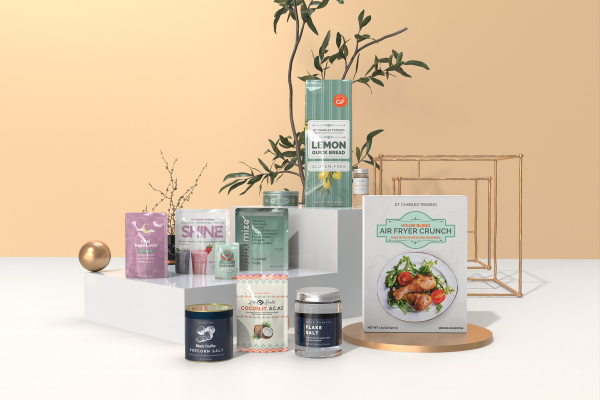The Evolution of Private Label Manufacturing
Private label manufacturing has undergone a remarkable evolution in 2024, reshaping industries ranging from food and beverage to dietary supplements. With a focus on customization, technology-driven innovation, and sustainability, manufacturers are driving significant changes in the marketplace.
This article explores the transformative role of private-label manufacturing, focusing on key trends and developments in the USA. Henceforth, it uses examples from Chicago and highlights products such as oatmeal, rice, and bakery items.
The Rise of Private Label Manufacturing
Also known as white label or store brand manufacturing, involves the production of goods by one company (the manufacturer) for sale under the brand name of another company (the retailer).
Historically associated with generic alternatives, private-label products now epitomize quality, innovation, and customization. Likewise, in the USA, private label agreements between retailers and manufacturers have become increasingly common. These agreements allow retailers to offer unique products tailored to their target market.
Customization and Innovation
One key driver of private label manufacturing’s success is its ability to offer customized solutions to retailers. From personalized dietary supplements to specialty beverages, manufacturers cater to diverse consumer preferences. For instance, a health-conscious consumer might seek organic oatmeal or gluten-free rice, and a manufacturer can produce these products under a private label agreement.
Technology plays a crucial role in driving innovation within the sector. Advanced manufacturing techniques enable rapid prototyping and iteration, allowing retailers to quickly bring new products to market. In the USA, manufacturers leverage technology to develop innovative food and beverage products that meet consumers’ evolving needs.
Sustainability and Ethical Sourcing
Sustainability has become a core focus for private-label manufacturing in recent years. Consumers increasingly seek products that manufacturers ethically source and make environmentally friendly. Manufacturers respond by partnering with sustainable suppliers and adopting eco-friendly practices throughout the production process.
For example, a wholesale rice retailer might collaborate with a white label manufacturer committed to sustainable farming practices. Similarly, a bakery near Chicago might source locally grown ingredients for items, reducing carbon emissions associated with transportation.
Market Dynamics & Future Outlook of Private Label Manufacturing
White label manufacturing is reshaping the competitive landscape of the food and beverage industry in the USA. Retailers recognize the value of offering unique, high-quality products under their brands, driving consumer loyalty and differentiation.
Looking ahead, the future is bright. As technology continues to advance and consumer preferences evolve, manufacturers will play an increasingly important role in shaping the future of retail. Furthermore, by embracing innovation, sustainability, and customization, white label manufacturers are poised to drive continued growth and transformation in the years to come.
Private label manufacturing in 2024 represents a paradigm shift in how products are produced, marketed, and consumed. From customized dietary supplements to sustainable bakery items, manufacturers offer retailers a diverse range of products tailored to their needs.
With a focus on innovation, sustainability, and market-driven solutions, private label manufacturing is poised to thrive in the ever-changing food and beverage industry in the USA and beyond.
